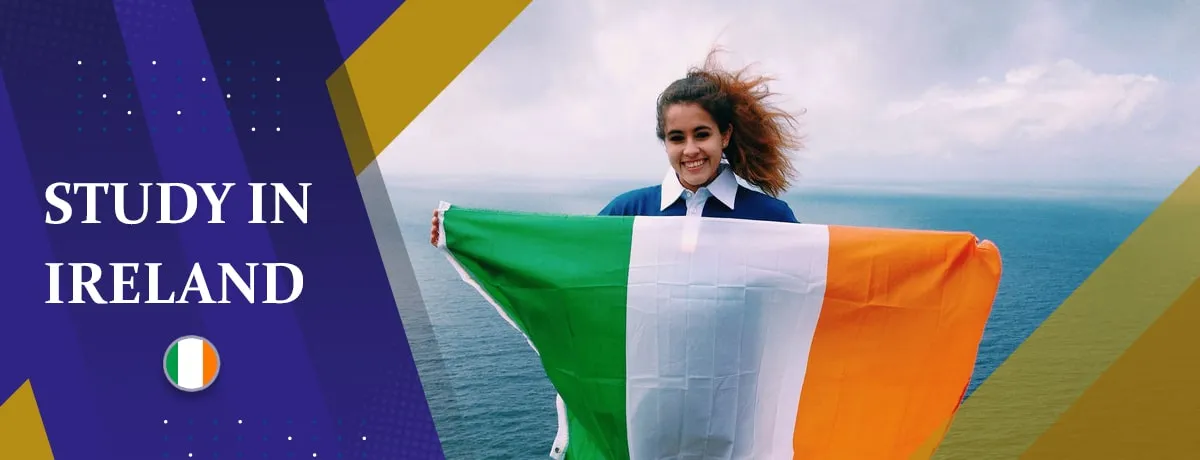Contact Information
Study in Ireland

Italy, officially the Italian Republic is a unitary parliamentary republic in Southern Europe. To the north, Italy borders France, Switzerland, Austria, and Slovenia. To the south, it consists of the entirety of the Italian Peninsula and the two biggest Mediterranean islands of Sicily and Sardinia.
Italy is considered to be both a major regional power and a leading middle power with membership in prominent institutions such as the UN, the EU, the NATO, the OECD, the OSCE, the DAC, the WTO, the G4, G6, G7, G8, G10, G20, the Union for the Mediterranean, the Latin Union, the Council of Europe, the Central European Initiative and the Uniting for Consensus. Italy currently maintains the world's tenth-largest nominal defence budget and is a participant in the NATO nuclear sharing policy. On 1 July 2014, Italy replaced Greece as the seat of the Presidency of the Council of the European Union.
The levels of education in Ireland are primary, secondary and higher (often known as
"third-level") education. In recent years further education has grown immensely. Growth in the
economy since the 1960s has driven much of the change in the education system. Education in
Ireland is free at all levels, including college (university).
The Department of Education and Skills, under the control of the Minister for Education and
Skills, is in overall control of policy, funding and direction, whilst other important
organizations are the National Qualifications Authority of Ireland, the Higher Education
Authority, and on a local level the Education and Training Boards are the only comprehensive
system of government organization. There are many other statutory and non-statutory bodies
which have a function in the education system.
Ireland offers a vast range of bachelor degree programs for students. Each of the courses is carefully designed to ensure that students develop strong foundation knowledge in their desired chosen subjects. Each department is managed by a team of competent teachers, so that students can expect the best out of their selected courses. All the universities in Ireland have a vibrant and active community that gives students a chance to gel with students from other countries. The bachelor degree programs are not only focused on academics. The universities also give students opportunities to take up voluntary services and encourage them to take part in cultural activities as well.
PostgraduateThe entry requirements for postgraduate study differ from university to university, course to course. However, most courses require an undergraduate degree, usually a minimum of a 2:2, in a related discipline.
Intakes in IrelandThe main intake offered by Universities and Colleges in Ireland is September. Few Institutions also offer a February start.
RequirementsUndergraduate
The admission requirements for entry to graduate programmes are a matter for each university.
Generally, however, a first degree of at least a second class honours standard or the
equivalent is required. If you are unsure of the equivalency of your qualification to that
required, please consult the National Qualifications Authority of Ireland’s qualifications
recognition section.
All Irish universities require a minimum competency in the English language that allows a
student to undertake their studies. Universities use IELTS (International English Language
Testing System) or other appropriate resources to determine an applicant’s suitability for a
course of study through English. Please see the university contact details provided on this
site for further details on admission requirements and procedures.
Popular Universities:
Education and Living Costs:
Tuition Fees:
The cost of studying in Ireland largely depends upon the university you are
seeking admission in and the study program you have taken up. Pursuing a postgraduate degree
program from an Irish university can cost you between €8900 and €37,000. The tuition fees
segregated according to the course are listed here:
Medicine and related: €12,035 - €37,000
Engineering:€9150 - €18,000
Science & Technology:€9150 - €18,000
Arts & Humanities: €8900 - €20,000
Business: €9150 - €18,800
|
Rent (per week) |
€127.00 |
|
Utilities (per week) |
€31.00 |
|
Food (per week) |
€46.00 |
|
Transport |
|
|
Entertainment |
|
|
Total |
€274.50 (per week) |
Note: Estimated living costs for the rest of the country is generally cheaper as rent is much cheaper in the secondary cities in Ireland.
Government of Ireland Scholarships for Indian students are available on one year taught
Masters at participating Universities that include University of Limerick, NUI Maynooth, NUI
Galway, Dublin City University, University College Cork, and University College Dublin (info.
updated as on June 2013).
Individual University Scholarships in Ireland are also available. Several Institutes of
Technologies offer merit-based scholarships to Indian students based on their academic
percentage. If you need information on scholarships in Ireland, please get in touch with us
IELTS: A MINIMUM SCORE OF 5 IELTS IS REQUIRED FROM INDIAN STUDENTS WHO WISH TO
APPLY FOR A STUDY VISA FOR IRELAND.
TOEFL: A MIMIMUM SCORE OF 173 IS REQUIRED FROM INDIAN STUDENTS WHO WISH TO
APPLY FOR A STUDY VISA FOR IRELAND.
 MSc
Computer Science (Networks and Distributed Systems)
MSc
Computer Science (Networks and Distributed Systems)